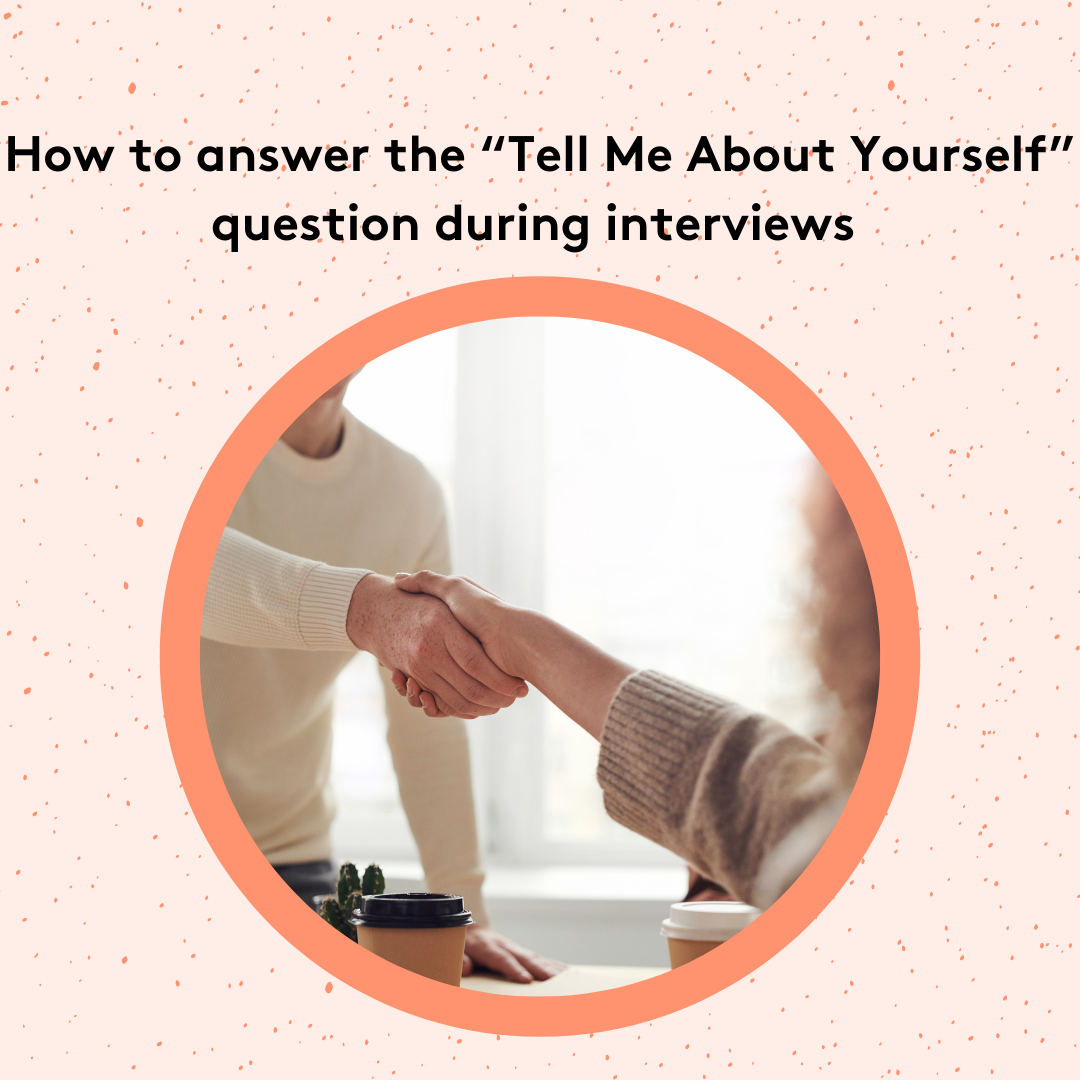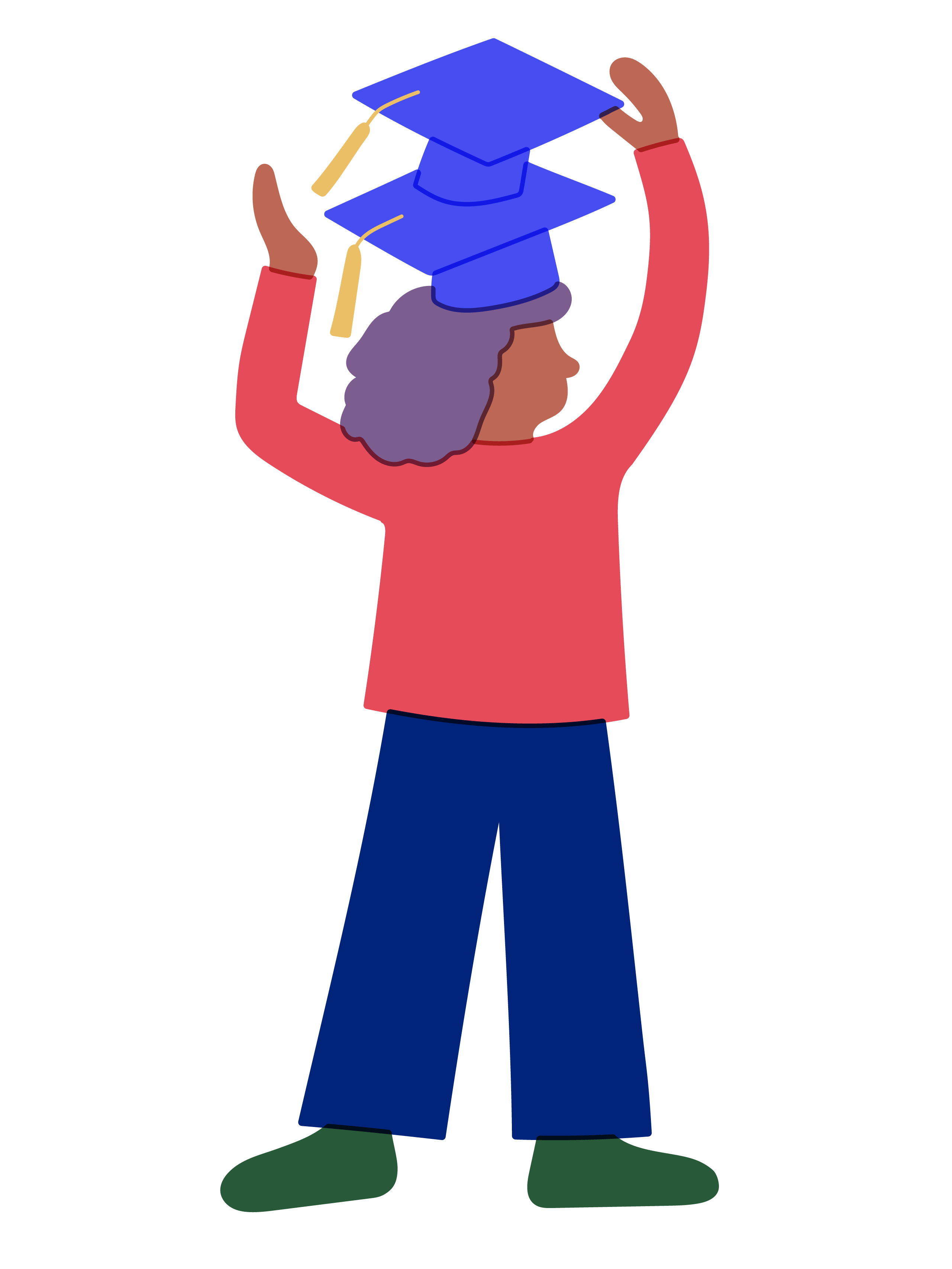 Whether you’re interviewing for graduate school or employment, you may fear being asked this open-ended question: “Tell me about yourself.” For many, this question invokes anxiety, as it’s too vague for there to be a “right way” to answer it. This can leave the interviewee scrambling to think of an impromptu good response. However, with some preparation beforehand, your response can make a stellar first impression and kick off the interview talking about the thing you know best – yourself! Start by following these important points:
Whether you’re interviewing for graduate school or employment, you may fear being asked this open-ended question: “Tell me about yourself.” For many, this question invokes anxiety, as it’s too vague for there to be a “right way” to answer it. This can leave the interviewee scrambling to think of an impromptu good response. However, with some preparation beforehand, your response can make a stellar first impression and kick off the interview talking about the thing you know best – yourself! Start by following these important points:
1. Decide which topics are most important to (and about) you.
The first step is to decide what you want to talk about. If there are salient themes that come across in your application that you would like to highlight, your answer to “tell me about yourself” is a great way to sum them up. Try to come up with one to three themes that you want to communicate, with evidence to support how they are embodied in who you are. For example, if you want to use this question to emphasize your commitment to education, you might say: “I have always seen myself as a teacher. I became involved in tutoring in high school and volunteered at an after-school program while I was working towards my bachelor’s degree in teaching and education.”
2. Get organized.
Once you decide on the themes you want to talk about, you need to come up with a way to present them. One option is to organize your response chronologically, highlighting how the themes have been notable throughout different parts of your life. The other option is to discuss the themes sequentially (e.g. discussing your love for teaching, followed by talking about your commitment to service, and ending on your passion for innovation). No matter which option you choose, you should start your response with a few sentences about who you are, such as where you came from, what your major influences are, and/or what makes you tick!
3. Rehearse and prepare your response, but don’t sound robotic.
Try to rehearse your response several times before the interview so you have it ready to go when asked. Remain fluid with a general idea of how you want the response to sound without memorizing it. Remember, you want to come off prepared, but you don’t want to seem overly rehearsed or robotic.
4. Be concise!
Being unprepared can lead to a rambling answer. Try to come up with an answer that is about two minutes long – just enough to get your message across without losing the interviewer’s interest.
5. Be ready to talk more about anything you mention.
As is true with items listed on a resume, anything you mention in your response is fair game for the interviewer to ask more about – so be prepared to discuss some of your topics further. In fact, since you have the power to decide what goes into your response, you have the advantage here: you get to decide which things best showcase just how great you are! Also, interviewers will usually ask for more details about topics and activities that they personally find interesting, so it’s not necessary to be overly detailed in your initial response. If they want to know more, they’ll ask!
When you’re on the interview trail, there’s a good chance that at least one prospective organization will start by asking “tell me about yourself.” However, even if you don’t get asked this question, preparing an answer allows you to efficiently practice communicating the message that you want the interviewer to receive: that you are an applicant who has the necessary ideals and experience for the spot!

Comments